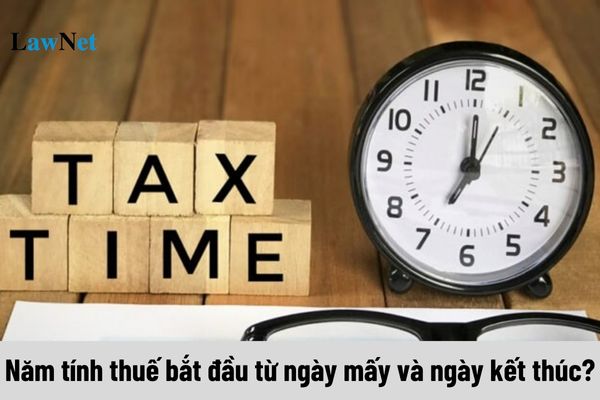Vietnam: When does the tax year start and when does it end?
Vietnam: When does the tax year start and when does it end?
Based on Clause 11, Article 3 of the Law on Tax Administration 2019 defines the tax year as follows:
Interpretation of terms
In this Law, the following terms are understood as follows:
...
9. Tax file includes taxpayer registration, tax declaration, tax refund, tax exemption, tax reduction, exemption from late payment interest, calculation exemption of late payment interest, tax payment extension, gradual payment of due tax debts, no tax collection; customs file; dossier for listing due tax debts; file for waiving tax, late payment interest, fines.
10. Tax finalization declaration means determining the amount of tax payable for the tax year or the period from the beginning of the tax year to the termination of activities generating tax obligations or the period from occurrence to termination of activities generating tax obligations as per law.
11. The tax year is determined by the calendar year from January 01 to December 31; if the fiscal year differs from the calendar year, the tax year applies according to the fiscal year.
...
The tax year is determined by the calendar year from January 1 to December 31.
However, if the fiscal year differs from the calendar year, the tax year applies according to the fiscal year.

Vietnam: When does the tax year start and when does it end? (Image from the Internet)
What are regulations on tax administration principles in Vietnam?
According to Article 5 of the Law on Tax Administration 2019, the following five principles of tax administration are regulated:
- All organizations, households, business households, and individuals have the obligation to pay taxes as prescribed by law.
- tax administration agencies and other State agencies assigned management duties perform tax administration according to the regulations of this Law and other relevant laws, ensuring transparency, equality, and safeguarding the legitimate rights and interests of taxpayers.
- Agencies, organizations, and individuals have responsibilities to participate in tax administration as prescribed by law.
- Implement administrative procedure reform and apply modern information technology in tax administration; apply tax administration principles according to international practices, including the principle of the nature of operations, transactions determine tax obligations, risk management principles in tax administration, and other principles suitable for Vietnam's conditions.
- Apply priority measures when conducting tax procedures for export and import goods according to the law on customs and the regulations of the Government of Vietnam.
What are the 08 prohibited acts in tax administration in Vietnam?
According to Article 6 of the Law on Tax Administration 2019, the following are the prohibitions:
Prohibited acts in tax administration
1. Collusion, connivance, concealment between taxpayers and tax administration officials, tax administration agencies for transfer pricing, tax evasion.
2. Harassment and annoyance toward taxpayers.
3. Exploiting to appropriate or illegally use tax money.
4. Intentional failure to declare or inaccurate, incomplete, or untimely tax declaration of tax amounts payable.
5. Hindering tax administration officials from performing official duties.
6. Using a taxpayer's tax identification number to commit a legal violation or allowing others to use one's tax identification number not conformable to law.
7. Selling goods, providing services without issuing invoices as prescribed by law, using illegal invoices and unlawful use of invoices.
8. Distorting, using for improper purposes, illegal access, destroying taxpayers' information systems.
The 08 prohibited acts in tax administration include:
- Collusion, connivance, concealment between taxpayers and tax administration officials, tax administration agencies for transfer pricing, tax evasion.
- Harassment and annoyance toward taxpayers.
- Exploiting to appropriate or illegally use tax money.
- Intentional failure to declare or inaccurate, incomplete, or untimely tax declaration of tax amounts payable.
- Hindering tax administration officials from performing official duties.
- Using a taxpayer's tax identification number to commit a legal violation or allowing others to use one's tax identification number not conformable to law.
- Selling goods, providing services without issuing invoices as prescribed by law, using illegal invoices and unlawful use of invoices.
- Distorting, using for improper purposes, illegal access, destroying taxpayers' information systems.
- Failure to issue an invoice is a legal violation and will be subject to administrative penalties.

